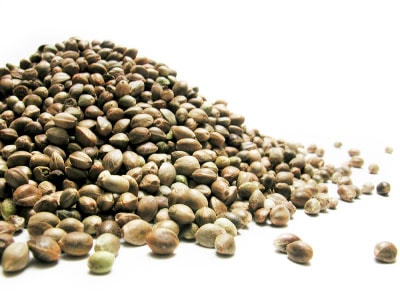
Written By: Sofia Layarda, MPH
Title: Master of Public Health
Alumni: University of California, Berkeley
Last Updated on:

These days, you can buy hemp seeds, hemp seed oil, hemp non-dairy “milk,” hemp tea, and even hemp beer. But what exactly is hemp? Some people incorrectly assume hemp is the same thing as marijuana, which it is not. Both hemp and marijuana belong to the same plant genus, Cannabis, but hemp used for food products is actually a different species from the medicinal variety. The chemically active ingredient that induces the high associated with marijuana use is tetrahydrocannabinol (THC), of which hemp plant has less than 0.3% (and some hemp producers claim even lower levels).

Sellers of hemp products claim multiple health benefits of consuming hemp seeds, including lowering blood pressure and high cholesterol, reducing arthritis symptoms and menstrual cramps, preventing pre-menopausal syndrome, and helping with multiple sclerosis – in other words, a whole laundry list of ailments. But do the studies confirm it?
Table of Contents
Since there is not much independent research available that states the nutritional information for hemp seeds, what we do know comes mostly from producers. Here are two examples:
One of the fatty acids found in hemp is gamma-linolenic acid (GLA), which exhibits some anti-inflammatory properties and is often touted as one of the “miracle” nutrients in hemp. The exact role of GLA in prevention of inflammation is still being studied. Hemp also contains all essential amino acids, although there are some questions about whether the bioavailability matches that of non-vegetarian sources.
A 2008 study published in the Journal of the American College of Nutrition documented the effects of supplementing the diets of 86 healthy volunteers with two 1g pills per day. Each volunteer received either fish oil, flaxseed oil, hempseed oil, or a placebo for 3 months. The study found increases in the plasma levels of DHA and EPA for those who received fish oil and increased ALA plasma in those who took flaxseed oil, but no significant change in those who received placebo or hempseed oil. A small study done in 2006 using hemp oil and flaxseed oil supplementation for 1 month (30 ml/day dosage) found small differences in the lipid profiles with no significant effect on cholesterol levels.
Hemp’s nutritional profile shows it to be a good source of protein, fiber, and several unsaturated fatty acids. However, no studies to date have confirmed hemp as a cure for any specific diseases. While there is probably no harm in consuming hemp, it is just one of many options for edible-source unsaturated fats. Other options include nuts (walnuts, pistachios, and almonds come to mind), olive oil, avocado, or fatty fish like salmon or sablefish. Until we know for sure the exact benefits hemp brings, rotate the source of unsaturated fats in your diet to get the full benefits of a diverse range.
Alumni: University of California, Berkeley – Sofia believes in bringing back fun and pleasure into everyday eating. She loves cooking, and is constantly experimenting with ingredients, creating recipes and trying them out on family and friends. Her latest interest lies in finding realistic and practical ways of environmentally-friendly food/eating habits.
Beyond Butter Chicken: What Real Indian Cuisine is Truly About – Podcast